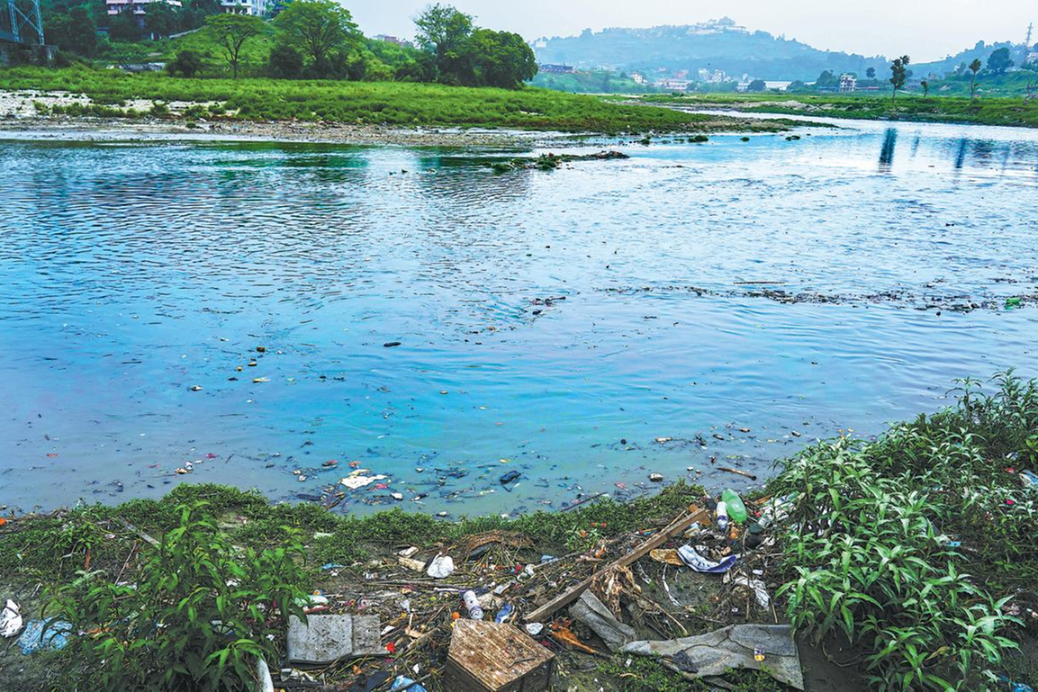Embassy: Japan urged to be responsible for nuclear water disposal

The Chinese Embassy in the UK stated on Tuesday that China urges Japan to take responsibility for the disposal of nuclear-contaminated water. The embassy emphasized the need for Japan to take the legitimate concerns of the international community and the Japanese people seriously and dispose of the contaminated water in a safe manner that is consistent with international obligations, safety standards, and good practices.
The following is a readout of the spokesperson's comments on Japan's disposal of the Fukushima nuclear-contaminated water.
Question: What is the Chinese government's position on Japan's disposal of the Fukushima nuclear-contaminated water?
Embassy Spokesperson: The Fukushima nuclear accident has brought a heavy disaster to the Japanese people. The Chinese government and people have expressed deep sympathy and provided assistance within our best capacity to the Japanese government and people. Regrettably, however, Japan has unilaterally decided to discharge the nuclear-contaminated water into the ocean in total disregard of the concerns and interests of the people of China and other countries of the world.
According to general international law and the provisions of United Nations Convention on the Law of the Sea, Japan has a responsibility to take all possible steps to prevent polluting the environment, to inform and fully consult countries that may be affected, to assess and monitor the environmental impact, to ensure transparency and to cooperate with the international community.
However, the Japanese side has been shunning its responsibilities and obligations under various pretexts. Without fully exploring potential options and consulting with other stakeholders, it decided on the ocean discharge plan out of selfish interests, shifting the risks to other countries and the entire humanity. This is extremely irresponsible.
We urge Japan to take seriously the legitimate concerns of the international community and the Japanese people and dispose of the contaminated water in a way that is safe and consistent with international obligations, international safety standards and international good practices, including by duly studying alternative options other than ocean discharge, rather than shift unforeseen risks to the international community. Pending full consultation and consensus with neighbouring countries and other stakeholders as well as relevant international agencies, Japan must not start the ocean discharge process.
Question: What hazards could be caused by Japan's unilateral decision to discharge the nuclear-contaminated water into the ocean?
Embassy Spokesperson: The harm of the discharge of the nuclear-contaminated water into the ocean must not be neglected. The contaminated water had direct contact with the reactors' cores melt during the Fukushima nuclear accident. It contains over 60 radionuclides, including tritium, carbon-14, cobalt-60, strontium-90, iodine-129, etc. The half-life of tritium is about 13 years, and that of carbon-14 is more than 5,000 years. There is not yet effective technology to treat many of those radionuclides. Some long-lived radionuclides may spread with the ocean currents and form a bio-concentration effect, which will multiply the total amount of radionuclides in the environment, causing unpredictable harm to the marine environment and human health.
Until now, the Fukushima nuclear accident has generated more than 1.3 million tons of contaminated water, with about 100 tons being further produced every day. The contaminated water is stored temporarily in over 1,000 storage tanks, which is expected to be discharged into the ocean over a period of 30 years. According to the research by a German marine research institution, within 57 days of the discharge of the contaminated water, the radioactive materials will spread to most of the Pacific Ocean and in 10 years, to the waters across the world. Therefore, ocean discharge has cross-border impacts on the marine environment and public health. It is only logical and legitimate for China and other stakeholders to express grave concerns over and firm opposition to Japan's decision.
Japan should conduct stable and reliable secondary treatment of the contaminated water which exceeds the standards, improve its discharge plan and marine environmental monitoring programme, and authorise the IAEA to coordinate the long-term international supervision and monitoring arrangement covering the whole process of the discharge with the participation of the relevant stakeholders.
Question: Why is it irresponsible for Japan to adopt the plan to discharge nuclear-contaminated water into the sea?
Embassy Spokesperson: Japan's decision to discharge the nuclear-contaminated water into the ocean?is driven by selfish interests. The disposal?of the contaminated water should be decided upon?with the greatest prudence, and there is no precedent in?discharging nuclear-contaminated water?caused by nuclear accident?into the ocean. We know that Japan initially?proposed five ways of disposal, including injection into the ground, discharge?into the ocean, vapor release, release as hydrogen gas into the atmosphere?and underground burial. However, Japan?did not conduct thorough study of the?other disposal options except for?ocean discharge. Instead,?Japan uses limited space as an excuse to stop building new storage tanks and decides to discharge?the contaminated water into the ocean,?transferring?the risks to other countries and all humanity.
Japan?has not seriously responded to international concerns and addressed them?accordingly. There are a lot of questions left unanswered. For example,?is ocean discharge?the best option? If the?treated contaminated water indeed meets the relevant discharge standards, as claimed by the Japanese government, then?why?not discharge?it domestically? According to media reports,?the Tokyo Electric Power Company?(TEPCO) has a track record of data tampering. Is the data it released?on the contaminated?water?trustworthy? How can the effectiveness and long-term reliability of the contaminated water purification devices be proved? Is Japan's environmental impact assessment report comprehensive and scientific, and can it ensure that there will be no negative impact on the environment? Japan?has yet to provide?sufficient scientific and convincing explanations on the above questions. In February this year, the Pacific Island Forum (PIF) stated that, according to the independent assessment of the PIF Panel of Experts, there is insufficient data to prove that the impending discharge by Japan is safe for people in the Pacific and the ocean's biodiversity, and?Japan only provided limited data and information despite?the PIF's repeated requests.
Japan?didn't?show due respect to the authority of the IAEA. Japan?claimed?that its discharge plan?was endorsed by the IAEA. This?is not true. In fact, the IAEA Task Force has not yet finished its review?and assessment.?There is no final?conclusion yet. On the contrary, the IAEA Task Force?found that the plan?was inconsistent with the IAEA safety standards?in many areas. In spite of that, Japan?insisted on pushing through the discharge plan in July last year?and stepped up?construction of the?discharge?pipelines. Just before?IAEA Task Force's visit to Japan on January 16?this year, Japan?announced that it would start?discharging the contaminated water?around spring or summer this year. This is not an action that?a responsible country is supposed to take, not to mention that this is in violation of?Japan's legal?obligations under international law.
The disposal of the contaminated water?is by no means Japan's private matter. Japan has a responsibility to take all possible steps to prevent polluting the environment, to inform and fully consult countries that may be affected, to assess and monitor the environmental impact, to ensure transparency and to cooperate with the international community. Japan should not shy away from its international obligations whatever its excuse is. To undergo the IAEA's technical review does not mean Japan can avoid full consultations with stakeholders, and Japan must not selectively interpret the IAEA Task Force's assessment report.
Question: Why is it that the Japanese government's unilateral decision to dump the nuclear-contaminated water into the ocean is unpopular?
Embassy spokesperson: For some time, the Japanese side, out of its political agenda, has been ignoring the legitimate security concerns raised by the international community on the basis of science. It has been trying to downplay and cover up the hazards of ocean discharge by strengthening international public relations campaigns and rope other countries into supporting its discharge plan. Such attempts to whitewash its erroneous decision will lead nowhere.
Both the Japanese people and the international community have expressed strong concerns and opposition to Japan's ocean discharge plan. The Japanese public has held many assemblies in protest against the Japanese government. According to a global survey recently conducted by CGTN which attracted the participation of more than 30,000 internet users worldwide within 24 hours, 93 percent of the participants strongly oppose Japan's ocean discharge plan. Greenpeace has issued a commentary criticising the Japanese government for violating international law including UNCLOS, noting that the Japanese government has failed to conduct a comprehensive environmental impact assessment, including the impact of transboundary marine pollution and that Japan is "using the Pacific Ocean as a dumping ground for radioactive contaminated water". All this clearly shows that the Japanese government's unilateral decision on ocean discharge, which transfers unpredictable risks to the whole world, has no support whatsoever.
China urges Japan to face up to international concerns, earnestly fulfil its international obligations, have thorough and meaningful consultations with stakeholders including its neighbours, ensure the contaminated water is handled in a scientific, open, transparent and safe manner, and fully submit to international oversight. All this is needed to ensure the protection of marine environment and the health interests of people around the world.

































